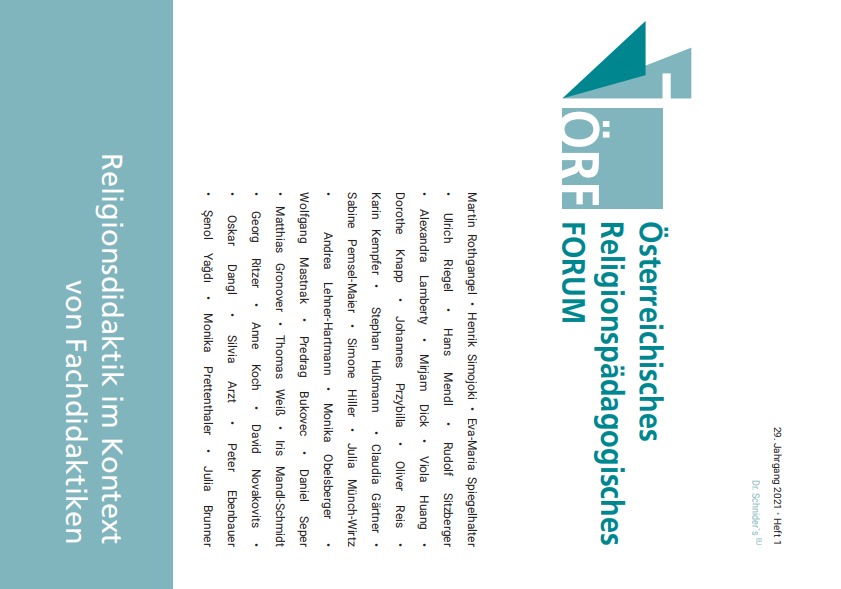Religion & Music in Classroom Education
A pedagogical and differential psychology’s perspective on participation modes
DOI:
https://doi.org/10.25364/10.29:2021.1.10Keywords:
interdisciplinary teaching, aesthetic experience of faith, liturgical music, differential psychology, qualitative researchAbstract
Church music, musical bibliodrama or mystical sound-scene improvisation involve both aesthetic and religious experience, hence their significance for religious and music education. In this context, qualitative factor analysis of students’ individual approaches allows us to distinguish a cognitive-analytical, an aesthetic-receptive, an emotional-empathetic and a mystical-transpersonal participation mode. Going hand in hand with the discrete manifestation of these modes, education enhances cultural awareness, shapes personality traits, encompasses health-promoting factors and deepens faith.
Downloads
Published
2021-05-17
How to Cite
Mastnak, W. (2021) “Religion & Music in Classroom Education: A pedagogical and differential psychology’s perspective on participation modes”, Austrian Journal of Religious Education, 29(1), pp. 160–175. doi: 10.25364/10.29:2021.1.10.
Issue
Section
Article - topic oriented

